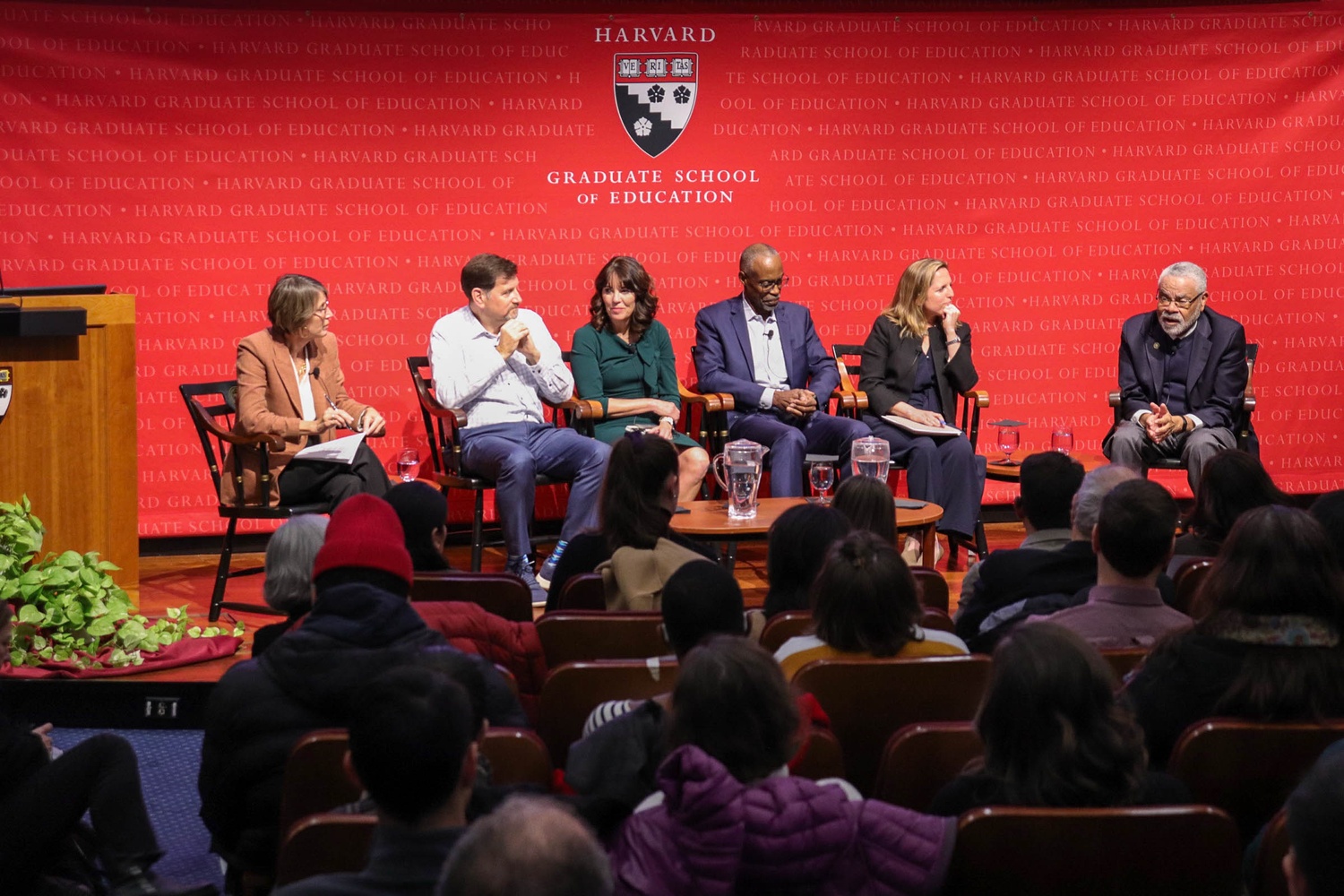
News
Summers Will Not Finish Semester of Teaching as Harvard Investigates Epstein Ties

News
Harvard College Students Report Favoring Divestment from Israel in HUA Survey

News
‘He Should Resign’: Harvard Undergrads Take Hard Line Against Summers Over Epstein Scandal

News
Harvard To Launch New Investigation Into Epstein’s Ties to Summers, Other University Affiliates

News
Harvard Students To Vote on Divestment From Israel in Inaugural HUA Election Survey
‘Be Bold’: Lead Educators Discuss Changing Role of Superintendent Under Trump

Education leaders discussed the changing role of the superintendency and what this means for the American education system in light of Donald Trump’s reelection at a Harvard Graduate School of Education panel Thursday evening.
The panel, called “Redefining Education Leadership for Turbulent Times,” focused on the role of the superintendent in modern-day public education systems. The superintendent is the highest leadership position in school districts across the U.S.
Panelists discussed the job in a context where top educators are facing pressure to improve outcomes as political divides diminish educational resources. Superintendents whose political concerns were largely local are now forced to contend with national policies impacting their districts.
“We all need to up our political game,” Carl A. Cohn, a project co-chair of Collaborative on Political Leadership in the Superintendency, said during the panel. “We can’t sit back and ignore this. We can’t argue that it’s all about instructional leadership.”
Panelists also talked about the growing need for superintendents to listen to and build trust with all people from their school districts when making decisions and resolving conflicts.
“The point is not to eliminate conflict,” Caitlin Sullivan, the co-founder and executive director of the nonprofit Leading Now, said. “You’re either seeking to understand yourself better, seeking to understand the other person, or seeking to understand the cproblem that you’re wrestling with.”
Bryson K. Green, an HGSE student, said the panel taught him about what civic leadership and community engagement looks like in practice.
He said he found the idea of healthy conflict particularly important, following his surprise after his home state of Wisconsin swung red in last week’s election.
“What does it mean to engage with communities and populations of people who are very different from me, hold different ideologies, yet are still centered in the same core belief that schools are designed for kids to learn and thrive?” he asked.
Natasha L. Patterson, an aspiring superintendent and current HGSE student, said she left the panel feeling empowered, harnessing the role of the superintendency as an “opportunity to make big change.”
“You need to be bold to do that,” Patterson said.
Deniann A. Grant, another HGSE student, said she “thought the panel was very informative.”
“It was helpful to have leaders from different parts of the country and in different kinds of industries or areas to kind of speak on what their take is on leadership,” she added.
Though the panelists anticipated challenges for superintendents in the upcoming years, they also discussed their hopes and offered pieces of advice for people in the position. Above all, they expressed the need for genuine care and connection with the students in their school districts.
“Even on your worst day, you’re gonna be some kid’s best hope,” said Robert Runcie, the CEO of the school network Chiefs for Change.
Want to keep up with breaking news? Subscribe to our email newsletter.
